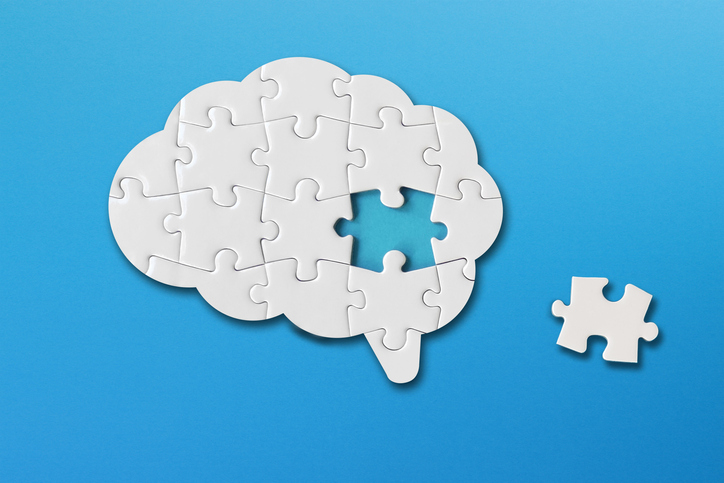Nurse Types / Neuroscience Nurse
Neuroscience is the study and treatment of neurological injuries or illnesses that affect your central nervous system. The brain and spinal cord serve as the body’s main processing center, which means if they become damaged or malfunction, it can significantly impact daily living.
Neuroscience nurses are part of the healthcare team helping patients cope with neurological diseases and disorders. They can treat a variety of conditions that affect the central nervous system, including dementia and spinal cord injuries.
If you’re looking for an exciting nursing career, you may want to explore this specialty. You can become a neuroscience nurse in three steps when you follow this guide.
In this article you’ll learn:
- What is a neuroscience nurse?
- What do neuroscience nurses do?
- Where do neuroscience nurses work?
- What are closely related fields?
- How do you become a neuroscience nurse in 3 steps?
- What are additional requirements of neuroscience nurses?
- What are the salary and career outlooks for neuroscience nurses?
- FAQs
What is a neuroscience nurse?
A neuroscience nurse is a registered nurse (RN) who serves as a valuable member of the healthcare team treating patients with neurological conditions.
If you want to be a top-notch neuroscience nurse, you must understand how the central nervous system works. This system affects both mental and physical behaviors, so you must have a firm grasp on how to address patient needs that fall into both categories.
In addition to any specialized care that you may provide as a neuroscience nurse, you also can expect to address the same kinds of needs that any other patient would have under your care. That includes administering medications, providing bedside assistance, educating patients on medical procedures, and how to stay healthy.
Qualities of a successful neuroscience nurse
Patients with neurological conditions can behave in unpredictable ways. In addition to being compassionate and empathetic, you must be patient and strong to work in this field. There may be days when your patients’ personalities shift, making them verbally abusive.
Other times, you may need to physically assist patients with daily living tasks, especially those with spinal cord injuries who lack the strength and coordination to function independently.
What do neuroscience nurses do?
Neuroscience nurses have many responsibilities outside of routine patient care. Some of the other tasks you may be asked to perform include:
- Administering neurological exams
- Assessing a patient’s condition
- Assisting with physical rehabilitation
- Diagnosing patients based on symptoms
- Following a treatment plan
- Performing surgical or wound care
Neuroscience nurses also might assist during neurological procedures such as brain and spinal surgery. When brain trauma is involved, patients need substantial and often lengthy rehabilitation. If you work in a rehabilitation center, you’ll be directly responsible for helping with this process.
A day in the life of a neuroscience nurse
It can be difficult to adequately describe a typical day for a neuroscience nurse because no such thing exists. Workplaces vary, as do the many neurological conditions your patients can exhibit. Each neurological disorder and injury have unique symptoms and challenges.
However, some of the daily tasks you may expect include:
- Administering medications
- Creating discharge orders for patients
- Educating patients on their conditions and care routines
- Performing morning rounds to check patient vitals and progress
Neurological patients can sometimes face tough obstacles on their roads to recovery. If you’re the type of person who likes to see people defy the odds, then working as a neuroscience nurse is a good career move.
Common conditions treated by neuroscience nurses
Neuroscience nurses can treat any condition that affects the central nervous system. If you go into this nursing specialty, you can expect to treat patients with the following health conditions:
- Alzheimer’s disease
- Dementia
- Intracranial bleeding
- Parkinson’s disease
- Paraplegia
- Traumatic brain injury
- Quadriplegia
- Epilepsy
- Multiple sclerosis
Some patients with autoimmune disease can experience issues with their central nervous systems, so you also may be tasked with their care.
NURSE TIP

Where do neuroscience nurses work?
As a neuroscience nurse, you can work in a variety of healthcare settings. Some of the most common include:
- Elder care facilities
- Hospitals
- Outpatient clinics
- Rehabilitation centers
You also can find opportunities with neuroscience specialists’ offices, including brain injury units and neurosurgery clinics.
What are closely related fields?
If you ever decide to advance your career in the neurosciences, you have plenty of options. Some closely related fields include:
- Clinical psychologist
- Clinical researcher
- Occupational therapy
- Pharmacology
- Physical therapy
- Research and education
- Speech therapy
You can take the knowledge and experience you’ve acquired in your neuroscience nursing field and apply it to any one of these career options.
How do you become a neuroscience nurse in 3 steps?
Becoming a neuroscience nurse requires a high level of commitment to your studies and gaining the right kind of professional experience. There are 3 steps you must take to get field ready.
Step 1 – Become a registered nurse
The first step in your journey to becoming a neuroscience nurse is to earn your registered nurse (RN) licensure. Because neuroscience nursing requires an advanced level of knowledge, most healthcare employers look for candidates with a Bachelor of Science in Nursing (BSN) degree.
Earn a BSN degree
You can earn a BSN in 1 of 3 ways. You can start from scratch and attend a four-year BSN program at an accredited nursing school. Another option for RNs already working in the field is to participate in an RN to BSN program. This lets you attend school while working as a nurse. If you have a bachelor’s degree in an unrelated field, you can complete an Accelerated BSN which takes 2 years or less to complete.
Pass the NCLEX-RN
After you’ve completed your BSN program, you must pass the NCLEX-RN exam to earn your licensure. Before you take the exam, you can brush up on your skills with the NCLEX-RN exam study guides and other test preparation materials provided by the National Council of State Boards of Nursing (NCSBN), the licensing body which administers the exams.
Step 2 – Accumulate experience
After you have your RN licensure, you’ll want to spend at least two years gaining valuable on-the-job experience relating to your neuroscience specialty.
Working in rehabilitation centers catering to central nervous system injuries and illnesses is one option. Look for RN positions with neurosurgical centers and private physicians who specialize in neurology.
Helpful skills and experience
One of the most helpful skills you can have as a neuroscience nurse is the ability to work on teams. Neurology conditions and illness are often complex and difficult to treat. You will need to work with other neuroscience professionals to improve patient outcomes.
Changing specialty to a neuroscience nurse
If you’re already working as an RN and interested in switching your specialty to neuroscience nursing, it’s not that difficult to accomplish. Let’s say you’re using your RN skills to work in a busy emergency room. You’re already well equipped for dealing with the trauma that causes many central nervous system injuries.
To qualify for neuroscience nursing, you’ll want to take continuing education courses focusing on this specialty. Incredible Health offers plenty of free CEUs for nurses looking to expand their knowledge and change their nursing specialties.
You should seek out opportunities that expose you to patients struggling with neurological disorders and injuries. Shadowing a neuroscience nurse is a great idea.
Get job matches in your area + answers to all your nursing career questions

Step 3 – Obtain certifications
Obtaining certifications is the final step in your journey to becoming a neuroscience nurse. While certification isn’t required to work in the field, it’s highly recommended. Neuroscience nurses have two options for professional certification.
1. Certified Neuroscience Registered Nurse (CNRN)
Available through the American Board of Neuroscience Nursing (ABNN), candidates must hold a valid RN licensure and have at least one year of full-time nursing experience (or 2,080 total hours) in direct or indirect neuroscience practice. Certification is valid for five years and can be renewed through re-examination.
2. Stroke Certified Registered Nurse (SCRN)
Also available through the ABNN, candidates must hold a valid RN license and have at least 2,080 hours of total experience in direct or indirect stroke patient care. Certification is valid for five years and can be renewed through re-examination.
What are additional requirements of neuroscience nurses?
It’s always a smart move to keep abreast of the latest best practices for your nursing specialty. Attending conferences and completing continuing education courses that focus on neuroscience are an effective way to keep your skills fresh.
What are the salary and career outlooks for neuroscience nurses?
Neuroscience nursing professionals can make an average annual salary of $84,277. You can check the average RN salary by state using the Incredible Health Nurse Salary by State tool. Some of the highest-paying cities for neuroscience nurses include:
- San Mateo, CA – $100,820
- Daly City, CA – $99,124
- Berkeley, CA – $99,069
- Green River, WY – $96,774
- Irvine, CA – $96,208
According to the U.S. Bureau of Labor Statistics (BLS), demand for neuroscience nurses is expected to grow by 6% between 2021 and 2031.
Get job matches in your area + answers to all your nursing career questions

Job satisfaction
Neuroscience nursing is a challenging specialty. Patients can have emotional and physical trauma that alters their behavior, making them more difficult to manage. Because of these factors, neuroscience nurses can become burned out if they don’t take self-care measures.
This nursing specialty can be rewarding, providing you with new learning experiences with every patient you treat. You can always talk with other nursing professionals currently working in neuroscience to ask their opinion about their working conditions.
Nurses may also want to join the American Association of Neuroscience Nurses (AANN) for building contacts.
Next steps
If you’re ready to launch a career as a neuroscience nurse, you can find all the resources you need on our website. From licensing resources for nurses to the latest jobs in your field, we have it all on Incredible Health!
FAQs
Neuroscience is the study and treatment of neurological injuries or illnesses that affect your central nervous system.
Neuroscience nursing professionals can make an annual average salary of $84,277. You can check the average RN salary by state using the Incredible Health Nurse Salary by State tool.
Some of the most common work environments include:
– Elder care facilities
– Hospitals
– Outpatient clinics
– Rehabilitation centers
Earn a BSN, take the NCLEX, and obtain certifications.
Get job matches in your area + answers to all your nursing career questions

Sources
- A Day in the Life of a Neuroscience Nurse. mrtamayo.com. Accessed June 28, 2022.
- Advance Your Practice with Stroke Nursing Certification. abnncertification. org. Accessed June 28, 2022.
- Before the Exam: NCLEX Registration and Authorization to Test. ncsbn.org. Accessed June 28, 2022.
- Job Satisfaction Challenges of Nurses in The Intensive Care Unit: A Qualitative Study. ncbi.nlm.nih.gov. Accessed June 28, 2022.
- Neurosciences. medlineplus.gov. Accessed June 28, 2022.
- Neuroscience Nurse Salary. ziprecruiter.com. Accessed June 28, 2022.
- Overview of Nervous System Disorders. hopkinsmedicine.org. Accessed June 28, 2022.
- Registered Nurses Job Outlook. bls.gov. Accessed June 28, 2022.
- This Neuroscience Nursing Credential Highlights: The Core Knowledge You Already Have. abnncertification.org. Accessed June 28, 2022.
